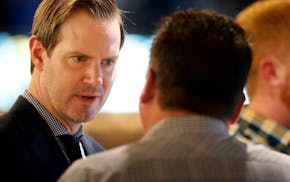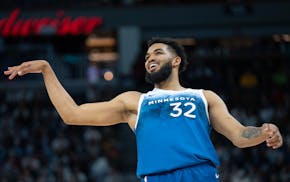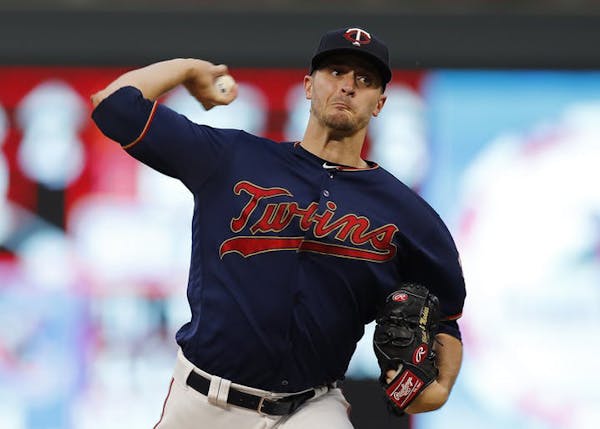FORT MYERS, FLA. — The Houston expansion franchise in the National League debuted in 1962, one season after the Los Angeles Angels and second version of the Washington Senators entered the American League.
Houston's nickname was the Colt .45s and featured a logo of a smoking long-barreled revolver that was fantastic, although one that would not have survived the 1970s with its glorification of guns.
Owner Roy Hofheinz was able to get built a revolutionary domed stadium to open in 1965. In honor of Houston's presence as a space center, and the futuristic new digs, Judge Roy changed the name of the team to the Astros and they played in the Astrodome.
The surroundings were a bit different in 1962 when the Colt .45s first assembled for spring training. The stadium was on a 12-ace plot of desert outside Phoenix in Apache Junction, Ariz.
The stadium was given the name Geronimo Park. According to the Wiki page on the Colt .45s' two-year stay in Apache Junction, the area was so remote that pitcher Turk Farrell would walk across the desert from the Superstition Ho Hotel to the ballpark with a .22 caliber pistol and shoot a snake or two in route.
The cactus and sagebrush got to the Colt .45s after two years, and they found a new spring training home in Cocoa, Fla. And I can confirm, a very robust jungle was ruined to make room for the ballplayers several miles inland from Cocoa Beach, the alleged home of the characters in a popular TV sitcom "I Dream of Jeannie'' of the 1960s.
No one dreamed of playing or watching a ballgame in Cocoa, particularly the Twins' beat writers from the 1970s. They were the Astros by then, and off-the-beaten path for most clubs training in Florida.
Judge Roy had to be buying dinner for Twins owner Calvin Griffith at league meetings, because the Twins were over there three times per March. And this was the distressing part:
Once Gene Mauch became the manager in 1976, he would get the feeling by mid-March that some of his pitchers weren't getting in a proper amount of work in exhibitions, so he would convince Astros manager Bill Virdon to play three more innings, after the nine-inning game had concluded.
This might be simply a nightmarish flashback from those waits for exhibitions to finish over there in the jungle, but I swear there was one late afternoon when the teams played five extra innings on Mauch's whim — 14 total — before the Twins loaded up the bus for the trip back to Orlando.
And there was no calm voice in a smart phone to direct you to this ballpark. If you took one small wrong turn going to or from Cocoa, you could wind up in "Deliverance'' country.
My tipoff was always this: If there was a homemade sign on the side of a country road advertising the sale of "hot boiled peanuts,'' get the Hades out of there as fast as the cheap rental car would take you.
What happened in exhibitions had impact on a handful of spots on the 25-player Opening Day, so there was a need to wait for Mauch's post-game quotes on the competitions taking place.
The Twins' spring training rivalry with the Astros came to mind earlier this week as a vivid contrast to what's a disdain for exhibition games in modern baseball. They don't decide roster spots on these games, and they basically are played in order to give the cities and counties that paid 10s of millions to provide spring training facilities something to sell as tourism.
The pandemic was used as an excuse to debut seven-inning games in doubleheaders in the 2020 mini-season. And the carryover this spring has been rules for exhibitions that have turned into, "Play as long as the managers want to.''
Seven innings were declared to be the norm for exhibitions through March 13, with as few as five innings permitted. Then, for the last two weeks, exhibitions In Florida and Arizona can be shortened to seven innings by managerial requests.
The umpires have the last say, and this can be confirmed: There never has been an umpire in the history of baseball at any level who has complained about a game being too short.
On Saturday, this revolution to render spring training games completely meaningless reached a new level, when Twins manager Rocco Baldelli requested a day earlier for the Red Sox to make it a five-inning game.
The Twins had played games on six straight days. Rocco figured with minor league camps not open, and thus not the usual dozens of reinforcements, his athletes could use a lighter work day.
The Twins have 74 players in this camp, a very large share healthy and available. Mauch might have had 50 in camp, and with the minor leaguers on the Atlantic Coast in Melbourne, that was the total available to play the exhibition schedule.
As it turned out, Saturday became a complete success for Rest & Recovery Rocco. The Twins were leading 2-0 and there was a light rain falling as starter Michael Pineda completed his second strong inning.
Baldelli and Boston manager Alex Cora came out of the dugouts at Jet Blue Park. Rocco, for sure, was lobbying for the game to be called and that's what happened.
This allowed Rocco to get even more more much-needed rest for his players who already had played 41 innings this week. And without an off day until Monday, his guys really needed this soft Saturday.
Meantime, Gene Mauch would be rolling over in his grave, if he hadn't been cremated after his death in 2005.

Reusse: Success on court helped Timberwolves do strong business

Reusse: Taylor's story. 'I just bought the Minnesota Timberwolves.'

Reusse: Back from injury, Towns doesn't have to carry load


